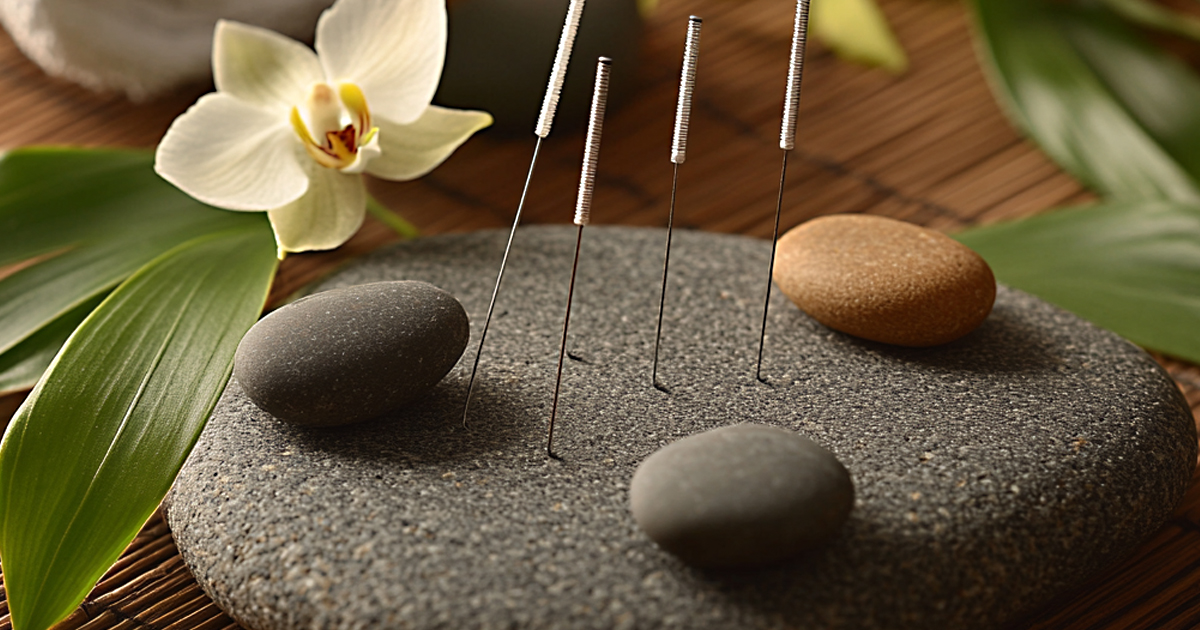The mind-body connection is a fundamental concept in holistic health, emphasizing the intricate relationship between our mental and physical states. This interconnectedness suggests that our thoughts, emotions, and beliefs can significantly impact our physical well-being, and vice versa. Understanding this connection is crucial for achieving optimal mental-physical balance and overall wellness.
Research has shown that psychological factors can influence various physiological processes, leading to psychosomatic effects. For instance, chronic stress can manifest as physical symptoms like headaches, muscle tension, or digestive issues. Conversely, physical exercise has been proven to boost mood and cognitive function, illustrating the bidirectional nature of the mind-body relationship.
Integrative wellness approaches leverage this connection by combining traditional medical treatments with complementary therapies that address both mental and physical aspects of health. Techniques such as meditation, yoga, and biofeedback have gained popularity for their ability to promote relaxation, reduce stress, and improve overall well-being.
By recognizing and nurturing the mind-body connection, individuals can take a more comprehensive approach to their health, potentially leading to improved outcomes in both mental and physical realms. This holistic perspective encourages a balanced lifestyle that considers the interplay between thoughts, emotions, and bodily functions, ultimately fostering greater resilience and vitality.
The Power of Mindfulness and Meditation
Mindfulness and meditation have gained significant attention in recent years for their powerful impact on mental and emotional well-being. These practices offer a range of benefits, including stress reduction, improved mental clarity, and enhanced emotional regulation. By incorporating mindfulness techniques into daily life, individuals can cultivate a greater sense of awareness and presence in the moment.
One of the primary advantages of meditation is its ability to reduce stress. Regular practice has been shown to lower cortisol levels, the hormone associated with stress, leading to a calmer and more balanced state of mind. Additionally, meditation can improve focus and concentration, allowing practitioners to approach tasks with greater clarity and efficiency.
Mindfulness techniques, such as body scans and breath awareness, help individuals become more attuned to their physical and emotional states. This increased self-awareness can lead to better emotional regulation, allowing people to respond to challenging situations with greater composure and resilience.
As research continues to support the benefits of mindfulness and meditation, these practices are being integrated into various settings, including schools, workplaces, and healthcare facilities. By dedicating even a few minutes each day to mindfulness or meditation, individuals can experience significant improvements in their overall well-being and quality of life.
Nourishing Your Body with Proper Nutrition
A balanced diet is the cornerstone of nutritional wellness, providing your body with the essential nutrients it needs to function optimally. Focusing on whole foods, such as fruits, vegetables, lean proteins, and whole grains, ensures you’re getting a wide range of vitamins, minerals, and antioxidants. These nutrients support various bodily functions, from maintaining a healthy immune system to promoting cognitive function.
Meal planning is an effective strategy for maintaining a nutritious diet. By preparing meals in advance, you can ensure you’re consuming a variety of nutrient-dense foods throughout the week. This approach also helps reduce the temptation to opt for less healthy convenience foods when time is limited.
The gut-brain connection is an important aspect of nutritional wellness that’s gaining increased attention. The foods we eat can significantly impact our mental health and cognitive function. Consuming a diet rich in probiotics and prebiotics supports a healthy gut microbiome, which in turn can positively influence mood, stress levels, and overall brain health.
Remember, proper nutrition is not about following strict diets or depriving yourself. Instead, it’s about making informed choices that nourish your body and support your overall well-being. By prioritizing nutritional wellness, you’re investing in your long-term health and vitality.
The Importance of Regular Physical Activity
Regular physical activity is a cornerstone of a healthy lifestyle, offering numerous benefits for both body and mind. Engaging in consistent exercise routines can significantly improve cardiovascular health, reducing the risk of heart disease and stroke. Strength training, an essential component of fitness, helps build lean muscle mass, increases bone density, and enhances overall body composition.
Beyond the physical benefits, exercise triggers the release of endorphins, often referred to as “feel-good” hormones. This natural mood booster can help alleviate stress, reduce symptoms of anxiety and depression, and improve overall mental well-being. Additionally, regular physical activity has been shown to boost cognitive function, enhancing memory and concentration.
Incorporating a variety of exercises into your fitness routine can help target different aspects of health. This may include aerobic activities for cardiovascular endurance, resistance training for strength, and flexibility exercises for improved mobility. The key is to find activities you enjoy, making it easier to maintain a consistent exercise habit.
Remember, even moderate amounts of physical activity can yield substantial health benefits. Aim for at least 150 minutes of moderate-intensity exercise or 75 minutes of vigorous-intensity exercise per week to reap the full rewards of an active lifestyle.
Quality Sleep: The Foundation of Health
Quality sleep is a cornerstone of overall health and well-being, playing a crucial role in various bodily functions. Maintaining good sleep hygiene is essential for achieving restorative rest. This includes establishing a consistent sleep schedule that aligns with your natural circadian rhythm, the internal biological clock that regulates sleep-wake cycles.
During sleep, the body cycles through different stages, including REM (Rapid Eye Movement) sleep, which is vital for cognitive function, memory consolidation, and emotional regulation. Inadequate or disrupted sleep can lead to various sleep disorders, such as insomnia or sleep apnea, which can have far-reaching consequences on physical and mental health.
Research has shown that poor sleep quality can impair cognitive function, affecting concentration, decision-making, and problem-solving abilities. It can also weaken the immune system, increase the risk of chronic diseases, and contribute to mood disorders. By prioritizing quality sleep and addressing any sleep-related issues, individuals can significantly improve their overall health and daily performance.
Stress Management Techniques for Overall Well-being
Effective stress management is crucial for maintaining overall well-being in today’s fast-paced world. Implementing various coping mechanisms can significantly reduce stress levels and improve quality of life. Relaxation techniques, such as deep breathing exercises, meditation, and progressive muscle relaxation, are proven methods to calm the mind and body. These practices can be easily incorporated into daily routines, providing immediate relief from stress-induced tension.
Achieving work-life balance is another essential aspect of stress management. Setting clear boundaries between professional and personal life, prioritizing tasks, and learning to say “no” to excessive commitments can help prevent burnout and reduce stress levels. Additionally, engaging in regular physical exercise not only promotes physical health but also serves as an excellent stress-relief tool by releasing endorphins and improving mood.
Self-care practices play a vital role in managing stress effectively. This includes maintaining a healthy diet, getting adequate sleep, and engaging in activities that bring joy and relaxation. Hobbies, spending time in nature, or practicing mindfulness can all contribute to a more balanced and stress-resistant lifestyle. By implementing these stress management techniques, individuals can enhance their resilience, improve their mental health, and achieve a greater sense of overall well-being.
Building Positive Social Connections
Building positive social connections is essential for our overall well-being and personal growth. Strong social support networks can provide emotional comfort, practical assistance, and a sense of belonging. To cultivate healthy relationships, it’s important to develop emotional intelligence and effective communication skills.
One way to foster positive connections is through active community engagement. Participating in local events, volunteering, or joining interest-based groups can help you meet like-minded individuals and expand your social circle. These activities not only provide opportunities for interaction but also contribute to a sense of purpose and fulfillment.
Developing emotional intelligence is crucial for maintaining healthy relationships. This involves recognizing and managing your own emotions, as well as empathizing with others. By understanding and responding appropriately to emotional cues, you can build stronger, more meaningful connections with those around you.
Effective communication is the cornerstone of any positive social interaction. Practice active listening, express yourself clearly and respectfully, and be open to feedback. These skills will help you navigate conflicts, express your needs, and understand others better.
Remember, building and maintaining positive social connections takes time and effort. Be patient with yourself and others as you work on developing these important life skills. The rewards of a strong social support network are well worth the investment.
Incorporating Mindful Technology Use
Incorporating mindful technology use is essential in today’s digital age. As our lives become increasingly intertwined with screens and devices, it’s crucial to find a healthy tech-life balance. One effective approach is implementing regular digital detoxes, where individuals consciously disconnect from their devices for set periods. This practice can help reduce stress, improve focus, and enhance overall well-being.
Screen time management is another key aspect of mindful technology use. Many smartphones now come equipped with built-in tools to track and limit screen time, allowing users to set boundaries and become more aware of their digital habits. Additionally, various productivity apps can help streamline tasks and minimize unnecessary device use, promoting a more efficient and balanced relationship with technology.
Online mindfulness tools, such as meditation apps and digital wellness platforms, paradoxically use technology to encourage more mindful living. These resources can guide users through relaxation techniques, breathing exercises, and mindfulness practices, all accessible from their devices.
By consciously incorporating these strategies, individuals can harness the benefits of technology while avoiding its potential pitfalls, ultimately achieving a more balanced and mindful approach to their digital lives.
The Role of Nature in Mental and Physical Health
Nature therapy, also known as ecotherapy, has gained significant attention in recent years for its positive impact on both mental and physical health. The concept of biophilia, which suggests humans have an innate connection to nature, underlies the importance of maintaining a strong environmental connection in our daily lives.
Engaging in outdoor activities has been shown to reduce stress, anxiety, and depression while improving overall mood and cognitive function. Green spaces, whether in urban parks or rural settings, provide opportunities for physical exercise, social interaction, and moments of quiet reflection. These natural environments can lower blood pressure, boost immune system function, and even accelerate recovery from illness or surgery.
The benefits of nature extend beyond active engagement. Simply viewing natural landscapes or having access to green spaces from home or work can improve concentration, creativity, and job satisfaction. This has led to an increased focus on incorporating natural elements into urban planning and architectural design.
As our lives become increasingly urbanized and technology-dependent, consciously cultivating our relationship with nature becomes more crucial. By recognizing the therapeutic potential of our environment, we can harness the power of nature to enhance our overall well-being and quality of life.
Developing a Personal Wellness Plan
Developing a personal wellness plan is a crucial step towards achieving optimal health and well-being. To begin, start by setting clear, achievable goals that align with your overall vision of wellness. These goals should encompass various aspects of your life, including physical health, mental well-being, and emotional balance.
Habit formation plays a key role in the success of your wellness plan. Identify small, manageable changes you can incorporate into your daily routine. These might include drinking more water, practicing mindfulness, or engaging in regular physical activity. Remember, consistency is key when forming new habits.
As you implement lifestyle changes, it’s essential to track your progress. This can be done through various methods such as journaling, using mobile apps, or maintaining a wellness diary. Regular monitoring allows you to celebrate successes and identify areas that may need adjustment.
Accountability is another crucial element of a successful wellness plan. Consider partnering with a friend, family member, or professional coach who can provide support and encouragement. Regular check-ins with your accountability partner can help you stay motivated and committed to your goals.
Remember that developing a personal wellness plan is an ongoing process. Be prepared to make adjustments as needed and remain flexible in your approach. With dedication and persistence, you can create a sustainable plan that supports your long-term health and happiness.
Embracing a Holistic Approach to Health and Happiness
Achieving optimal health and happiness requires a multifaceted approach that addresses various aspects of our lives. By focusing on physical well-being through regular exercise and balanced nutrition, nurturing our mental health through stress management and mindfulness practices, and fostering meaningful relationships, we can create a solid foundation for overall wellness.
It’s important to remember that there is no one-size-fits-all solution, and what works for one person may not work for another. The key is to remain open-minded, experiment with different strategies, and listen to your body and mind. Regularly reassess your goals and adjust your approach as needed to ensure continued growth and improvement.
Ultimately, the journey towards health and happiness is ongoing and ever-evolving. By embracing a holistic perspective and making consistent, small changes in our daily lives, we can cultivate a sense of balance, fulfillment, and well-being that positively impacts all areas of our existence. Remember, it’s not about perfection, but rather about progress and making choices that align with your personal values and aspirations.










